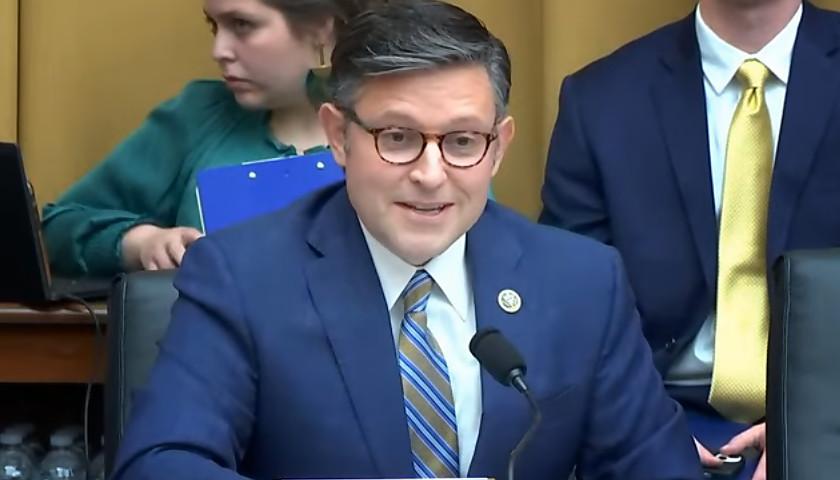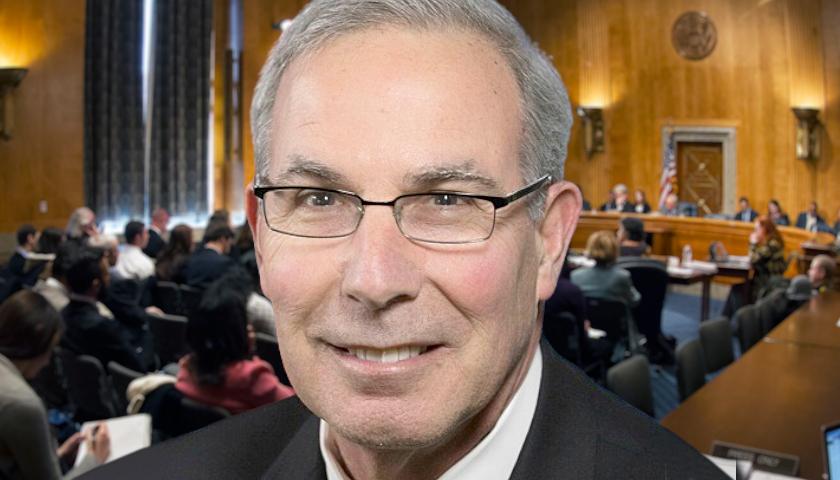by J.D. Foster
Recognizing the precarious plight of the nation’s fiscal situation, newly installed House Speaker Mike Johnson has called for a bi-partisan commission to study the nation’s debt. Everyone involved in federal fiscal policy for a length of time surely responded with some variation on, “Good grief, Charlie Brown.” Congress has formed and ignored innumerable such groups over many decades.
Often these commissions, some bi-partisan, some not, some bi-cameral, most not, arose out of a cynical attempt to substitute study for action. Reducing federal budget deficits and slowing the trajectory of federal debt is hard work and supremely painful politically, so why not instead convene a body to study the matter until it goes away? Speaker Johnson does not yet seem the type to fall for simplistic cynicism, so let’s assume he is serious and consider his proposal on its substance.
The first thing to notice is Congress already has two bi-partisan groups charged with keeping a keen eye on deficits and debt — the House and Senate Budget Committees. Both hold scores of hearings each session including with Administration officials often starting with the Director of the Office of Management and Budget and Treasury Secretary. Then there’s the Congressional Budget Office, currently led by a fine Director in Phil Swagel and with a staff producing dozens of relevant reports.
 As if that weren’t enough. Two other committees also have these issues within their remit – the House Ways and Means and Senate Finance Committees. We know Washington is fond of wasteful redundancy, but shouldn’t four congressional committees be enough?
As if that weren’t enough. Two other committees also have these issues within their remit – the House Ways and Means and Senate Finance Committees. We know Washington is fond of wasteful redundancy, but shouldn’t four congressional committees be enough?
Not necessarily. The membership of these committees arises as per the internal process of each party in each chamber and according to the expressed preferences of the members on the committees. Thus not every member of the House Budget or Senate Finance Committee may share a debt commission’s motivations. Finance Chair Sheldon Whitehouse of Rhode Island isn’t exactly known for fiscal rectitude. In contrast, a debt commission’s members would be those chosen by leadership for the specific purpose.
A procedural problem with a debt commission-type exercise is they generally lack the mandate to produce concrete proposals. It is easy to bloviate about raising taxes on the rich and corporations to reduce the deficit, and incidentally reduce income inequality, address climate change, and whatever else is topical. It is equally easy to preach the righteousness of spending reduction in the abstract while repeating the waste, fraud, and abuse mantra. Having to develop real budget trajectory-altering proposals for enactment – and then vote for them – is much less fun. Without these charges and some process for bring the debt commission’s product to the House floor, a debt commission report appears just another door stop.
And what of the Senate? However urgent, necessary, and well-crafted, House action on a debt commission proposal absent a Senate counterpart would be pure political suicide. Some may still have flashbacks of AARP running TV commercials in former House Speaker Paul Ryan’s district portraying Ryan pushing his grandmother over a cliff.
For all the yes buts it is easy to understand the Speaker’s interest. Unlike most of his colleagues, he showed early on a serious interest in learning about policy, including fiscal policy. Having worked with many Members, both Democrat and Republican, House and Senate, my experience indicates all talk a good game about responsible fiscal policy, but very few know anything more than an inch below the surface. Johnson surely knows this as well as anyone. When Washington is finally forced to deal with the budget deficit, Members will be scrambling to understand the details. Even producing a door-stop report, a debt commission isn’t a bad teaching exercise. A small cadre of members will learn something for future use.
– – –
JD Foster is the former chief economist at the Office of Management and Budget and former chief economist and senior vice president at the U.S. Chamber of Commerce. He now resides in relative freedom in the hills of Idaho.








